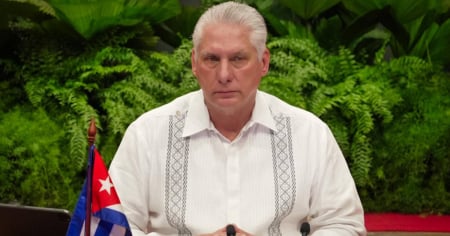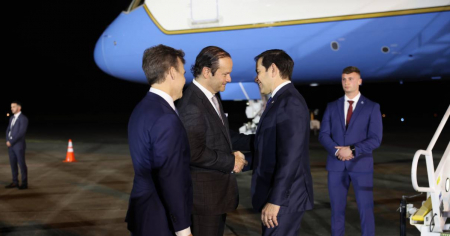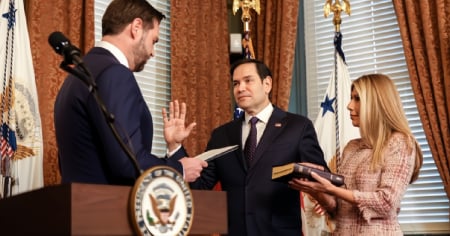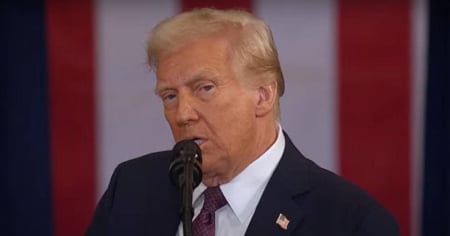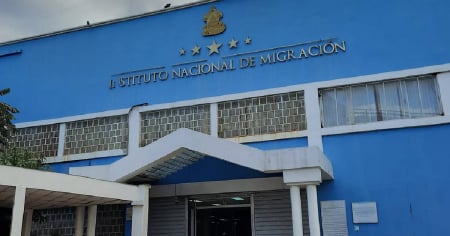
Related videos:
Mexico is facing an unprecedented crisis following the implementation of the immigration policies of the President of the United States, Donald Trump.
Thousands of migrants attempting to cross into the United States have found themselves stranded in Mexico, with no clear options to continue their journey and lacking resources to return to their home countries, creating a complex situation.
The shelters in Tapachula and other border areas are overwhelmed. Telemundo reported that these institutions receive deported or transit migrants, without sufficient government support.
The Catholic Church in Tapachula has expressed its concern over the lack of support from the Mexican government to assist these individuals. Despite resource limitations, they continue to help migrants seeking to return voluntarily to their countries.
The tightening of U.S. immigration policy has led to an increase in deportations and the cancellation of programs that facilitated the legal entry of migrants.
Among the measures adopted is the elimination of the CBP One application, a tool that allowed asylum requests from Mexico; deportations; and the deployment of thousands of military personnel at the border to prevent the entry of undocumented individuals.
In this scenario, many migrants have given up their intention to reach the United States and are choosing to return to their home countries. In the shelters, it is estimated that at least 40% of the residents are in the process of returning. The majority come from Honduras, El Salvador, Colombia, and Venezuela.
The government of Mexico has also strengthened its immigration controls. President Claudia Sheinbaum ordered the deployment of 10,000 National Guard personnel to the northern border following a conversation with Trump, in an effort to contain migratory flows and avoid trade sanctions against Mexico.
This situation has generated desperation among migrants, particularly Venezuelans, who have been affected by the elimination of Temporary Protected Status (TPS) and the disappearance of CBP One.
Many of them have crossed jungles and traversed dangerous routes for weeks to reach Mexico, only to encounter a closed border with no possibilities of moving forward due to the risk of being deported to a third country, or even ending up in jail.
The shelters at the border are trying to prepare to receive deportees, but the lack of funding leaves them in a critical situation. Some migrants prefer to live on the streets rather than enter the shelters, due to the presence of authorities overseeing these centers.
Uncertainty continues to grow among the migrant population in Mexico. Immediate solutions are not forthcoming, and the crisis is worsening, leaving thousands of people in a limbo with no viable options for their future.
Frequently Asked Questions About the Migration Crisis in Mexico and Donald Trump's Policies
Why are migrants stranded in Mexico?
Migrants are stranded in Mexico due to the tightening of immigration policies in the United States under the presidency of Donald Trump. These policies include the cancellation of the CBP One application and an increase in deportations, leaving thousands of people with no clear options to move toward their final destination.
What impact does the cancellation of the CBP One application have?
The cancellation of the CBP One application, which allowed asylum requests in the United States from Mexico, has left many migrants without a legal way to enter the country. This has generated desperation and an increase in the number of migrants stranded at the Mexican border, seeking alternatives to continue their journey or return to their home countries.
How is Mexico responding to the migration crisis?
Mexico has strengthened its immigration controls and is deploying elements of the National Guard at the northern border. Additionally, President Claudia Sheinbaum has announced the repatriation of migrants stranded in Mexico and the acceptance of deportees from the United States as part of an effort to manage the crisis.
What are the nationalities most affected by Trump's new policies?
The nationalities most affected by Trump's new immigration policies include migrants from Honduras, El Salvador, Colombia, Venezuela, Cuba, Haiti, and Nicaragua. These groups face greater challenges in entering the United States due to the elimination of humanitarian parole and other restrictive measures.
Filed under:

